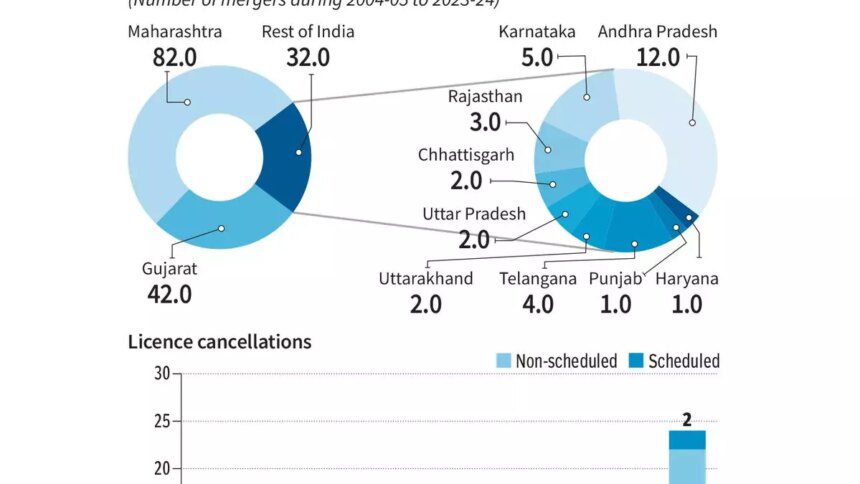Title: The Future of Urban Co-operative Banks in India
Urban co-operative banks (UCBs) have a long history in India, but their future has been uncertain in recent years. With the government’s push to make the cooperative movement a mass movement for the development of the country, there is renewed interest in revitalising the UCB sector. However, the RBI has been cautious in issuing new licences for UCBs due to past governance issues and financial instability.
Despite the challenges, stakeholders in the cooperative banking sector, including the Ministry of Cooperation and the National Federation of Urban Cooperative Banks and Credit Societies (NAFCUB), are keen on expanding the reach of UCBs across the country. The recent establishment of a task force on the transformation of UCBs and credit societies is a step in the right direction.
The key priorities for the sector include upgrading governance practices, adopting modern technology, and adhering to RBI regulations. There is also a focus on improving financial health, expanding branch networks, and enhancing depositors’ trust.
While the RBI may still be cautious about issuing new licences for UCBs, the cooperative banking sector is optimistic about its future. The goal is to double the balance sheet size of UCBs relative to scheduled commercial banks by 2030 and further increase it by 2047. With a concerted effort towards growth and modernisation, UCBs could play a significant role in promoting financial inclusion and supporting economic development in urban and semi-urban areas.
In conclusion, the future of UCBs in India depends on their ability to adapt to changing financial landscapes, embrace technology, and strengthen governance practices. With the right strategies and support from regulators and policymakers, UCBs have the potential to thrive and serve as vital pillars of the country’s banking system.










